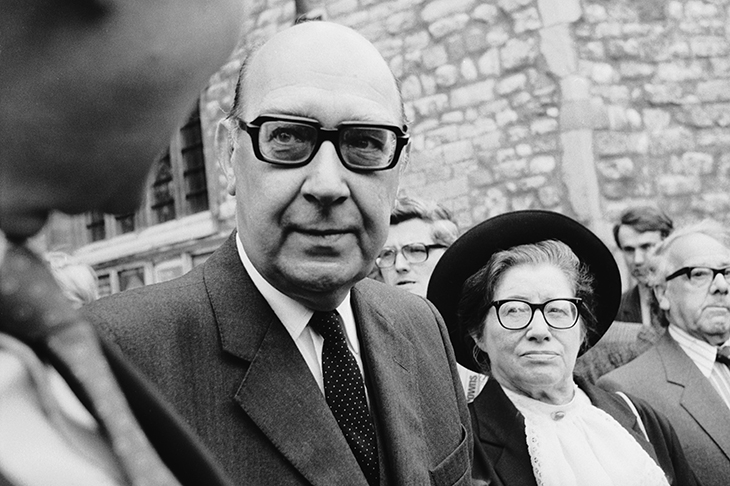I first came across Philip Larkin’s poem ‘This Be the Verse’ when I was 18 in the late 1970s. You know the one: ‘They fuck you up, your mum and dad/ They may not mean to, but they do…’
I was working as a volunteer in a care home for physically handicapped adults in Camden, north London. I had dropped out of school without doing my A levels. When I visited my parents over Easter, my father was angry about my newly acquired pierced ear and earrings: ‘What does it say about who you’re associating with? You’ve really upset your mother.’
Seething, I returned to London and conveyed to the very camp head of the care home — who had been instrumental in the acquiring of said earrings — my misfortune at having such narrow-minded parents. The next day, there was Larkin’s High Windows collection on my bed, with a bookmark tucked into ‘This Be the Verse’ — written in April 1971. It summed up everything I felt about my parents and the family in general. In those days ‘fuck’ was a shocking swear word. It was the first time I had seen it in print. It was delicious seeing it on the page, bold as brass, right next to the hated words ‘mum and dad’.
I read it over and over. I learned it by heart. It became the party piece that I brought out on every possible occasion to impress the girls. Which it duly did. And so it framed my late teenage years.
The problem, though, was that Larkin, and writers and artists like him, helped to mould the society which emerged out of the 1960s and 1970s. Instead of shrugging it off for what it should have been — a teenage rebellion poem — society has embraced it and all it says about family life. Insidiously, the sentiments of ‘This Be the Verse’, and of the myriad other artistic creations like it, have framed the western condemnation of the traditional family.
This condemnation has been incredibly successful. In 1970, 84 per cent of British families were two-parent, with all the well-documented advantages that brings. Now, the figure for families with UK-born mothers is less than half. In 1970, only 8 per cent of families were single-parent. Now, the figure is nearly a third, with lone-parent families much poorer than average.
The irony is that Larkin himself is said to have had good relations with his parents. Indeed, he apparently wrote ‘This Be the Verse’ while staying with his widowed mother at her home in Loughborough. But there’s nothing strange about this. As Charles Murray has catalogued in America and David Goodhart in the UK, traditional marriages have become the domain of the well-off and better educated. But for reasons which must be to do with some perverse ‘lack-of-virtue’ signalling, the elite pretend this is not true, that they are not in strong marriages with strong families, and purvey the idea to the rest of us that the traditional family is passé, worthy only of ridicule. And so the rest of us suffer while they prosper.
The title of Larkin’s poem is taken from Robert Louis Stevenson’s poem ‘Requiem’, which views death as a happy return home: ‘This be the verse you grave for me…’ Larkin perverted it, and there is no honour in what he wrote.
So it was Larkin who fucked us up, not our parents. I did follow his edict, and, sadly, don’t have any kids myself. But I do still have my mum and dad. They’re both in their late eighties, tormented with dementia, but my happiest, most joyful moments are when I am with them, playing hymns on Dad’s old piano. They can’t remember what day it is, but somehow they remember the songs of praise from their courting days. They barely have the strength to get out of a chair, but somehow they have the energy to belt out the words. It’s a little late, but in their honour and on the 48th anniversary of the original poem, here’s my reworking of Larkin:
This Be the Converse
They lift you up, your mum and dad.
They really mean to, and they do.
They fill you with great things they had
And add some extra, just for you.But they were lifted in their turn
By saints in old style hats and dress,
Who most of the time showed fond concern
And helped to bury all distress.Man hands on joyfulness to man.
It deepens like a coastal shelf.
Go forth as quickly as you can,
And do have many kids yourself.






Comments